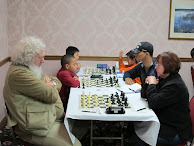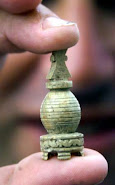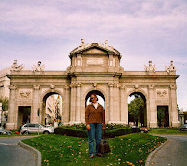I'm not sure how I feel about this case. I see the merits of the arguments on both sides.
From The New York Times
Indian Tribe Wins Fight to Limit Research of Its DNA
By AMY HARMON
Published: April 21, 2010
SUPAI, Ariz. — Seven years ago, the Havasupai Indians, who live amid the turquoise waterfalls and red cliffs miles deep in the Grand Canyon, issued a “banishment order” to keep Arizona State University employees from setting foot on their reservation — an ancient punishment for what they regarded as a genetic-era betrayal.
Members of the tiny, isolated tribe had given DNA samples to university researchers starting in 1990, in the hope that they might provide genetic clues to the tribe’s devastating rate of diabetes. But they learned that their blood samples had been used to study many other things, including mental illness and theories of the tribe’s geographical origins that contradict their traditional stories.
. . . .
But genetics experts and civil rights advocates say it may also fuel a growing debate over researchers’ responsibility to communicate the range of personal information that can be gleaned from DNA at a time when it is being collected on an ever-greater scale for research and routine medical care.
. . . .
Researchers and institutions that receive federal funds are required to receive “informed consent” from subjects, ensuring that they understand the risks and benefits before they participate. But such protections were designed primarily for research that carried physical risks, like experimental drug trials or surgery. When it comes to mining DNA, the rules — and the risks — are murkier.
Is it necessary, for instance, to ask someone who has donated DNA for research on heart disease if that DNA can be used for Alzheimer’s or addiction research?
Many scientists say no, arguing that the potential benefit from unencumbered biomedical research trumps the value of individual control.
“Everyone wants to be open and transparent,” said Dr. David Karp, an associate professor of internal medicine at the University of Texas Southwestern Medical Center in Dallas, who has studied informed consent for DNA research. “The question is, how far do you have to go? Do you have to create some massive database of people’s wishes for their DNA specimens?”
. . . .
Thursday, April 22, 2010
Subscribe to:
Post Comments (Atom)



































No comments:
Post a Comment